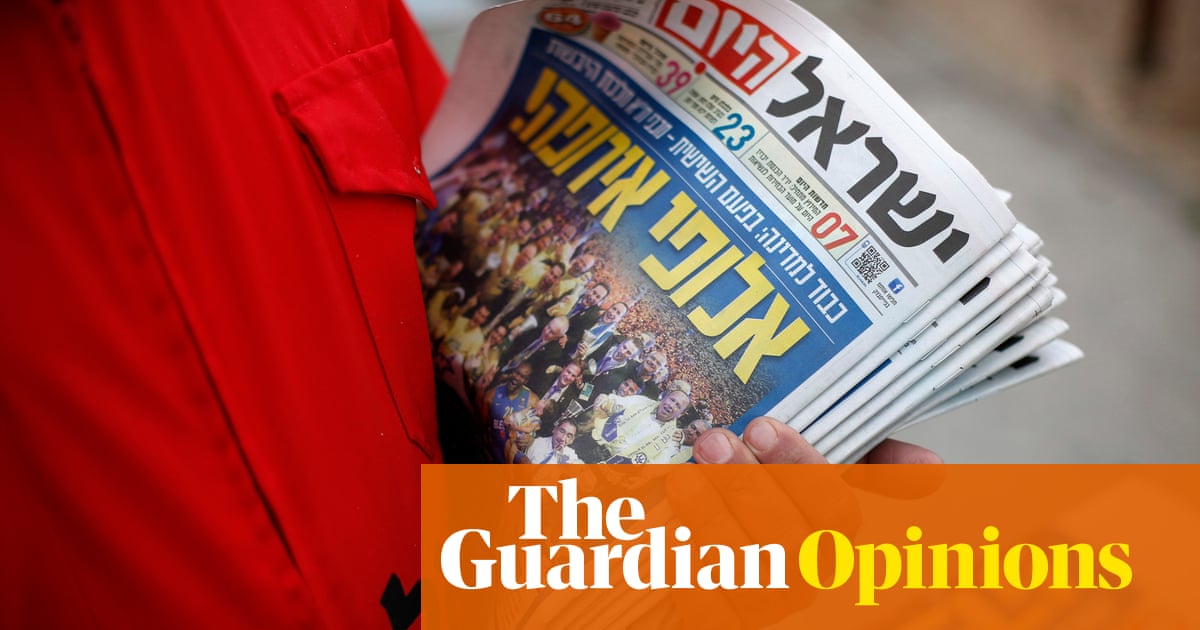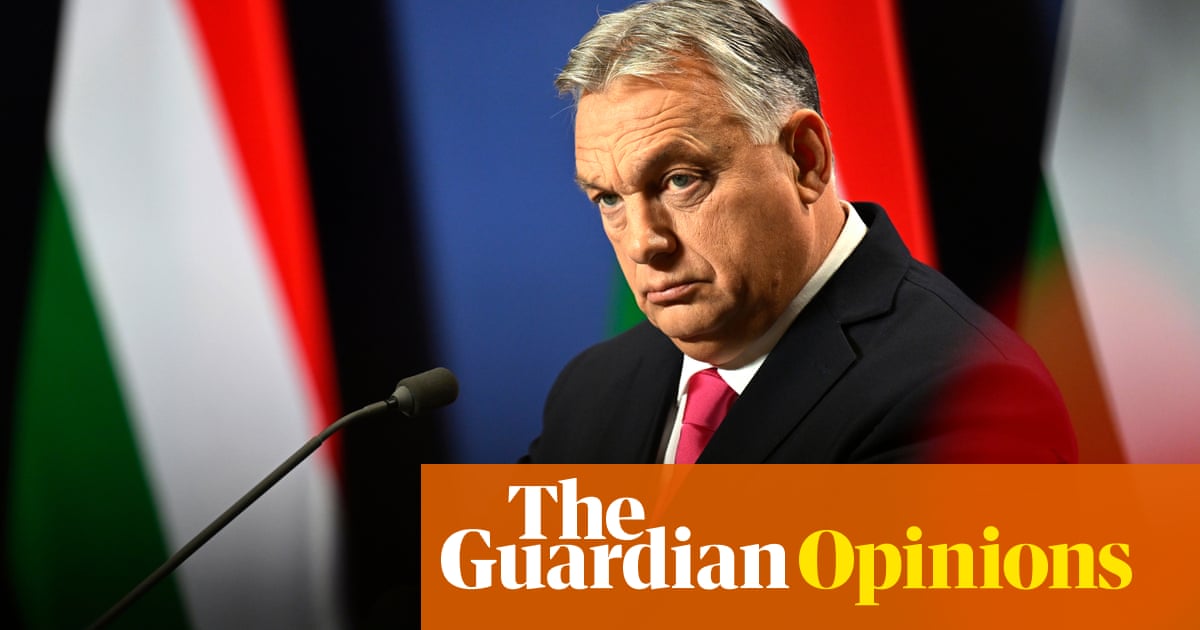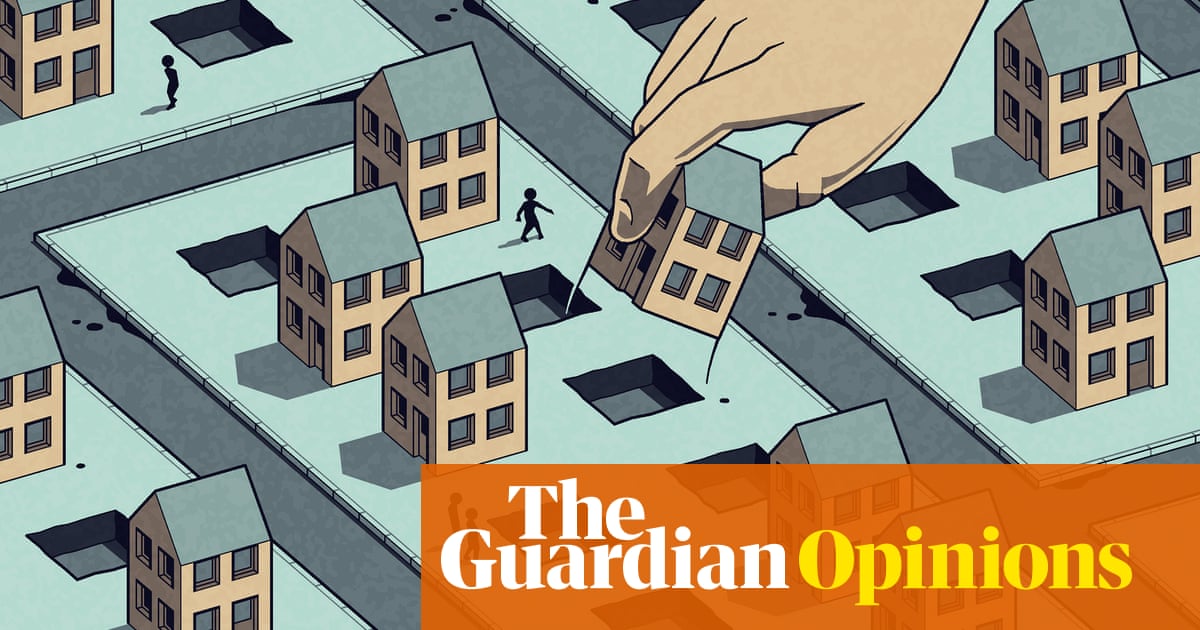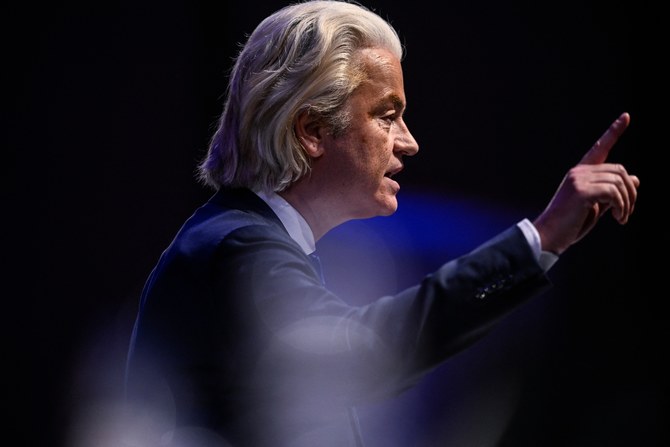
Viktor Orbán was his usual poisonous self, spouting toxic twaddle in true Boris Johnson/Nigel Farage style. Hungary’s hard-right prime minister and Europe’s saboteur-in-chief warned supporters at a Budapest rally that, without him, their country would be overrun by millions of illegal migrants and cease to exist as a nation.
The EU was to blame, he said. The commission was under the spell of his liberal nemesis, the Hungarian-American philanthropist George Soros. It was secretly preparing to go to war with Russia over Ukraine. A vote for his ruling party, Fidesz, in this weekend’s European parliamentary polls was the only way to keep the peace.
“We can only stay out of the war if Hungarian voters support the government,” Orbán declared. “We must win the European elections in such a way that the Brussels bureaucrats in their fear will open the doors of the city to us and leave their offices in a hurry.”
Orbán’s slogan summed up the unsubtle approach of the EU’s longest-serving, most subversive national leader: “Occupy Brussels! No migration. No gender. No war!” It’s crude stuff, but it resonates in Hungary and beyond. Polls suggest Fidesz will win again, despite reinvigorated opposition led by a party turncoat, Péter Magyar.
Coming from Orbán, such cynically bonkers Europhobia is nothing new, but for one astonishing fact. He takes charge of the EU on 1 July. For six months, he will hold the rotating presidency of the council of ministers, which comprises heads of government and is the most powerful EU decision-making body.
Several English country phrases come to mind: fox in the henhouse, cat among the pigeons, poacher turned gamekeeper. It’s a crazy arrangement. At a time of multiple global crises, when Europe’s democracy, defences, prosperity and values are under siege, only the EU would risk such a leadership travesty.
Time will tell how Orbán uses this platform. Given his pro-Russia, pro-China leanings, opposition to military aid for Ukraine and EU enlargement, and long-running, financially penalised defiance of Brussels’ judicial, civil rights and media standards, it could be bloody – and expensive. Orbán, a man unconstrained by principle, typically trades vetoes for EU funds and favours for his country.
No one individual personifies the Europe-wide struggle against the resurgent forces of rightwing reaction and regression better than he. Across the continent, radical parties, no longer marginal, are successfully weaponising visceral fears over identity, migrants, crime, green climate action, gender equality, “woke” culture, and economic and physical security.
Rightwing populist, nationalist or “sovereignist” groups are predicted to emerge as big election winners this weekend, though still behind the two main centrist coalitions. For them, Orbán is a role model. Unlike most on the hard right – Italy’s prime minister, Giorgia Meloni, excepted – he holds his country’s top job.
Orbán plainly enjoys ruffling EU feathers. He recently cut a deal with Vladimir Putin on Russian energy supplies, ignoring EU sanctions. Last month he welcomed Xi Jinping to Budapest, praising China as a “pillar of the new world order” – even though the EU regards Beijing as a systemic rival and the Xi-Putin alliance as a strategic threat.
Orbán had kind words for another of the EU’s least favourite people after paying court to Donald Trump in Florida. “He [Trump] has a very clear vision ... He will not give a penny” in aid to Ukraine, he reported. Orbán opposes Kyiv’s EU and Nato membership – and believes Brussels should be more supportive of Israel’s war in Gaza.
All this could spark damaging ructions this autumn. Yet Orbán’s most profound impact may be on internal post-election politics. With inexperienced people moving into top jobs in Brussels, his influence may prove crucial, especially over the anticipated consolidation of victorious far-right and hard-right parties into enlarged parliamentary alliances.
Like an over-large spider at the heart of a complex web, Orbán is already spinning Europe’s future. He recently urged Meloni and France’s National Rally presidential hopeful, Marine Le Pen, to create a hard-right “super group” to challenge the mainstream coalitions, the conservative European People’s party (EPP) and the centre-left Socialists & Democrats (S&D).
Orbán’s big idea seems to be that Fidesz and like-minded parties, such as Poland’s Law & Justice (PiS), Spain’s Vox and the Sweden Democrats rally around Meloni and Le Pen. “The future of the sovereignist camp in Europe, and of the right in general, now rests in the hands of two women,” he told the French magazine, Le Point.
But policy differences, such as Le Pen’s pro-Russia stance, and Meloni’s hopes of morphing into an Angela Merkel-like “essential leader” of a rightwards-shifting Europe, could scupper his plan. Meloni’s collaboration with the electorally challenged, centre-right commission president, Ursula von der Leyen, reflects wariness over the Orbán-Le Pen connection – and a broader split between the hard right and extremist headbangers such as Germany’s Alternative für Deutschland (AfD).
Fearing Orbán’s coming, Belgium and Austria called last week for accelerated moves to suspend Hungary’s voting rights. “One state in particular [is] increasingly adopting a transactional, blocking and veto attitude,” Belgium’s foreign minister, Hadja Lahbib, said. “This is a moment of truth ... We need to have the courage to make decisions.”
But suspension is unlikely, if only because it would set a problematic precedent. And there is some cause for optimism. “The first council presidency after the European parliament elections traditionally achieves little,” wrote the analyst Thu Nguyen in Internationale Politik Quarterly. That’s partly because newly installed commissioners and MEPs take time settling into their plush, well-upholstered seats.
How ironic that bureaucratic inertia in Brussels, not a principled fighting stand against the hard right, may save Europe from the worst of Orbán. Yet how dismaying, too, as new incarnations of 20th-century fascism stalk the continent and the world burns, that the EU should find itself in thrall to a man who both exploits and despises it.
Simon Tisdall is the Observer’s Foreign Affairs Commentator












